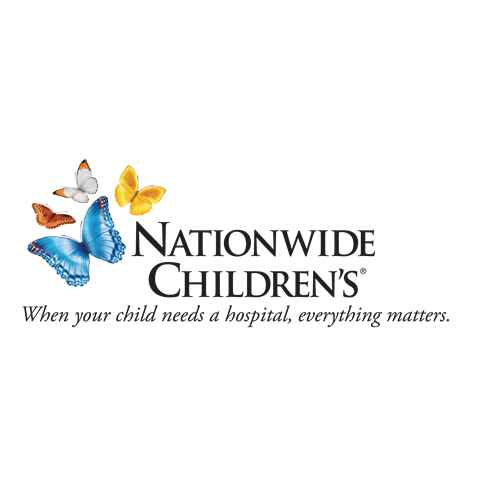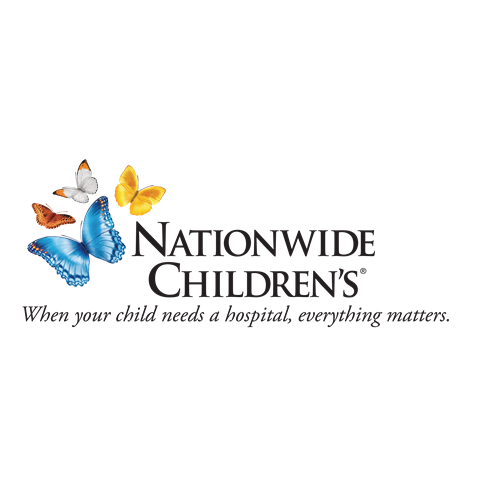Available Technologies
# of Displayed Technologies: 10 / 12
Categories
 Targeting GSK3β in NK Cells for Enhanced Antitumor Activity.
Targeting GSK3β in NK Cells for Enhanced Antitumor Activity.
TS-002302 — Acute myeloid leukemia (AML) causes myeloid cells to interfere with the production of healthy white blood cells, red blood cells and platelets; patients will experience fatigue, easy bruising, infections, etc. Due to expansion ex vivo with IL-15, AML patients and donors’ natural killer (NK) cells have an increase in glycogen synthase kinase 3 beta (GSK3β) from the loss of cytotoxicity and defective metabolism.
Researchers at Nationwide Children’s Hospital targeted GSK3β in NK cells to promote antitumor activity by expanding NK cells with feeder cells expressing membrane-bound IL-21 without altering the GSK3β levels. They deleted GSK3β using the cas9/RNP and expanding paired-donor knock out and wild-type NK cells. When assessing transcriptional and functional alterations induced by the loss of GSK3β, GSK3β-KO cells demonstrated changes in gene expressions that suggested possible metabolic reprogramming and exhibited 150% higher spare respiratory capacity, a marker for metabolic fitness. By using mbIL21 expansion in the expansion of NK cells and GSK3β in these cells, the upregulation of GSK and drug inhibitors is prevented.
- College:
- Inventors: Lee, Dean; Naeimi Kararoudi, Meisam; Pereira, Marcelo
- Licensing Officer: Corris, Andrew
 Use of CD38 as the Integration Site for Enhanced Function of Gene-Modified Immune Effector Cells
Use of CD38 as the Integration Site for Enhanced Function of Gene-Modified Immune Effector Cells
TS-002301 — CD38 regulates the metabolism and the immunomodulation of tumor microenvironments, making it an essential component to anti-cancer therapies. Researchers at Nationwide Children’s Hospital developed a novel technology using CD38 as a new insertion site for NK and T cells. They generated CAR-NK and CAR-T cells by integrating the DNA encoding CAR in the CD38 locus to enhance anti-tumor activity and improve metabolic function of NK and T cells. Additionally, this can be used in combination with CD38 monoclonal antibodies without risking fratricide.
- College:
- Inventors: Lee, Dean; Naeimi Kararoudi, Meisam
- Licensing Officer: Corris, Andrew
 Chimeric Antigen Receptor Targeting CD38
Chimeric Antigen Receptor Targeting CD38
TS-002300 — Hematologic cancers like leukemia, lymphoma and myeloma are found in 10% of adult cancer cases and 25% in pediatric cancer cases. Researchers at Nationwide Children’s Hospital’s Center for Childhood Cancer have developed a novel single-chain variable fragment (scFv) that targets and binds to CD38. The scFv can generate CD38 binding proteins, including chimeric antigen receptors (CAR), single-chain antibodies, multi-specific engagers, etc. Additionally, the single-chain variable fragments can be incorporated into polyfunctional proteins and have identical binding properties as CD38 antibodies which are used as anti-cancer therapeutics.
- College:
- Inventors: Lee, Dean; Naeimi Kararoudi, Meisam; Troy, Ella
- Licensing Officer: Corris, Andrew
 Overcoming Immune Checkpoint Inhibition with VISTA Deficient NK Cells – ViDe* NK Cells
Overcoming Immune Checkpoint Inhibition with VISTA Deficient NK Cells – ViDe* NK Cells
TS-000972 — Natural Killer (NK) cells express a range of receptors to activate or inhibit certain cellular behavior to kill cancer cells. When an NK cell is deficient or dysfunctional, the efficiency of the NK cells is severely limited. VISTA is a protein sequence that activates T cells and acts as a moderator for the immune system. It has low-to-moderate expression but has been the target of study by a team of researchers at Nationwide Children’s Hospital led by Dr. Dean
Lee. By removing VISTA in expanded NK cells, the inhibitory signal will be eliminated and thus resulting in an enhanced ability of NK cells to target cancers and overcome the immune-suppressive signals for improved cancer immunotherapy.
- College:
- Inventors: Lee, Dean; Pereira, Marcelo
- Licensing Officer: Corris, Andrew
 Generation of Antigen-Specific Chimeric Antigen Receptor T cells Using Cas9/RNP and AAV
Generation of Antigen-Specific Chimeric Antigen Receptor T cells Using Cas9/RNP and AAV
TS-000969 — Gene therapy experts at Nationwide Children’s Hospital have made significant advancements in designing optimal viral vectors for producing Good Manufacturing Practice (GMP)-grade viral vector products. Adeno-associated virus (AAV) serotypes such as AAV1, 2, 2.5, 3, 5, 6, 8, 9 and rh74 have properties optimized by these researchers. Chimeric Antigen Receptor T cells (CAR T) are comprised of an extracellular antigen recognition domain, intracellular T cell activation and co-stimulatory domains. These cells allow for potent and specific targeting of cancer cells, bypassing the need for antigen presentation and T cell receptor recognition. Generating CAR T cells using the process of lentiviral transduction has limitations stemming from the random integration of transgenesis, where oncogene activation, gene silencing, or negative effects on the CAR T antitumor efficacy are possible.
- College:
- Inventors: Lee, Dean; Naeimi Kararoudi, Meisam
- Licensing Officer: Corris, Andrew
 Priming Peptide Pools for Isolation of SARS-CoV-2-Specific T Cells
Priming Peptide Pools for Isolation of SARS-CoV-2-Specific T Cells
TS-000913 — Peptides can be used to stimulate antigen-specific T cells, allowing activated T cells to be isolated from immune individuals to be used in vaccination or treatment in others. The novel disease Coronavirus, also denoted as 2019-nCoV, was recognized by the World Health Organization as an unknown etiology in December of 2019. Severe Acute Respiratory Syndrome (SARS) is a disease that presents flu-like symptoms that is caused by coronavirus (SARS-CoV). A current process widely applicable to many pathogens uses the Miltenyi Prodigy device. In a study led by Dr. Dean
Lee, his team found that this process can be adapted to SARS-CoV-2 using a specialty mix of peptides to isolate T cell immunity.
- College:
- Inventors: Lee, Dean
- Licensing Officer: Corris, Andrew
 Dual Targeting CD38KO and CARKI NK Cell Immunotherapy
Dual Targeting CD38KO and CARKI NK Cell Immunotherapy
TS-000906 — Natural Killer (NK) cells express a range of receptors to activate or inhibit certain cellular behavior to kill cancer cells. Additionally, CD38 presenting cells have been used as a marker for cancer stem cells, specifically those that often avoid recognition when common surface antigen processes are used. CARK1 is a phosphorylate that impacts cell growth and development. A team led by Dr. Dean
Lee has developed CD38k0 NK cells that they combine with CARK1 to create a series of monoclonal antibodies that targets cancer cells. Along with better cell targeting, this combination improves the efficacy of treatment in comparison to the CAR, NK, or CD38 antibodies as independent components.
- College:
- Inventors: Lee, Dean; Naeimi Kararoudi, Meisam
- Licensing Officer: Corris, Andrew
 Non-Cellular Membrane Derivatives of Artificial Antigen Presenting Cells to Select and Expand CAR T Cells in vitro or Drive in vivo Expansion and Mitigate Exhaustion
Non-Cellular Membrane Derivatives of Artificial Antigen Presenting Cells to Select and Expand CAR T Cells in vitro or Drive in vivo Expansion and Mitigate Exhaustion
TS-000878 — Chimeric Antigen Receptor T cells (CAR T) are comprised of an extracellular antigen recognition domain, intracellular T cell activation and co-stimulatory domains. These cells allow for potent and specific targeting of cancer cells, bypassing the need for antigen presentation and T cell receptor recognition. CAR T is mostly generated using lentiviral transduction of autologous T cells in conjunction with non-specific expansion in cell culture. CAR T-specific stimulation has been described using genetically engineered artificial antigen presenting cells (aAPCs). A strategy designed by Dr. Dean
Lee and his team can select and expand any CAR T cell product in culture. This allows for safely infused exosomes and other membrane particles derived from aAPCs to also be envisioned as a pharmacologic, given to patients receiving CAR T to promote in vivo expansion and persistence of said cells. This approach could also be applied to antigen-specific TCR stimulation by modifying the aAPC to express the appropriate MCH-peptide as the antigen.
- College:
- Inventors: Lee, Dean; Lamb, Margaret; Thakkar, Aarohi
- Licensing Officer: Corris, Andrew
 CD33-CAR NK Cells
CD33-CAR NK Cells
TS-000857 — CD33 is a receptor that spans multiple membranes and is expressed on myeloid lineage cells and sometimes lymphoid cells. A team of researchers led by Dr. Dean
Lee have found a new way to modify existing CD33 processes to provide Natural Killer (NK) cells the additional ability to recognize cell targets expressing CD33. Acute Myeloid Leukemia (AML) expresses multiple antigens, where CD33 is the most common. This new process, labeled as CD33-CAR, shows a significant advantage in targeting AML that presents with CD33, especially in cases that resist unmodified NK cells.
- College:
- Inventors: Lee, Dean; Naeimi Kararoudi, Meisam
- Licensing Officer: Corris, Andrew
 CD38low NK Cells for Cancer Immunotherapy
CD38low NK Cells for Cancer Immunotherapy
TS-000841 —
Natural Killer (NK) cells express a range of receptors to activate or inhibit certain cellular behavior to kill cancer cells. In a group study it was found that by using TGFb-imprinting, NK cells are driven to a pro-inflammatory phenotype with hypersecretion of IFN-γ, TNF-α, and GM- CSF. These cells, now TGFbi, had decreased degrees of CD38 at both the RNA and the protein level. Studies performed by Drs. Dean
Lee and Marcelo Pereira found that CD38 NK cells can be utilized to target CD38+ multiple myeloma patients and improve their progression-free survival by avoiding death of healthy surrounding cells, as well as enhancement of NK cell function.
- College:
- Inventors: Lee, Dean; Pereira, Marcelo
- Licensing Officer: Corris, Andrew
